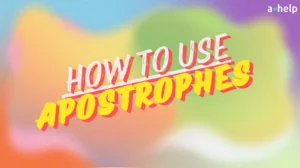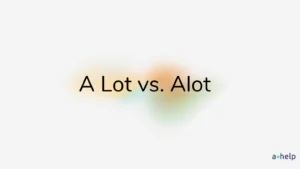The English language is full of words and phrases that sound similar but have different meanings, leading to confusion. Two such examples are “altogether” and “all together.” At first glance, they might seem interchangeable, but they serve distinct purposes in sentences.

✅ AI Essay Writer ✅ AI Detector ✅ Plagchecker ✅ Paraphraser
✅ Summarizer ✅ Citation Generator
- “Altogether” is an adverb used to mean “completely” or “in total.”
- “All together” refers to a group acting collectively or simultaneously.
Understanding the difference between these two is crucial for clear and accurate communication. In this text, we’ll explore the meanings, uses, and nuances of “altogether” and “all together” to help you confidently distinguish between them in your writing and speech.
The Difference Between Altogether and All Together
The word “altogether” is an adverb used to describe something that is complete or total. When you use “altogether,” you’re talking about considering everything in a situation or adding things up to get a total amount. It can mean “completely,” “entirely,” or “in total.”
For example, you might say, “The project was altogether successful,” which means the project was completely successful in every aspect. Or, if you’re talking about the cost of something, you might say, “Altogether, the groceries came to $50,” meaning the total cost of the groceries was $50.
“Altogether” can also be used to emphasize a statement, like in, “It was altogether a fantastic trip.” Here, it means the trip was entirely fantastic, without any drawbacks. It’s important to use “altogether” correctly in sentences to make sure your meaning is clear. “The children were altogether happy with the new playground” means that all the children were completely happy with the playground.
The phrase “all together” is used when talking about a group of people or things being in one place or doing something at the same time. It means “in a group” or “all at once.” Unlike “altogether,” which is about the total of something, “all together” focuses on the idea of unity or simultaneous action.
For example, if you’re at a family gathering, you might say, “Let’s take a photo with everyone all together,” meaning you want to take a photo with the whole group in one shot. Or, if you’re organizing a team activity, you might say, “We’ll start the game when we’re all together,” indicating that the game will begin once everyone is gathered in one place.
Another example could be, “The choir sang all together, creating a beautiful harmony.” This means that all the members of the choir sang at the same time, resulting in a harmonious sound. It’s important to use “all together” correctly to convey the idea of collective action. “The books were placed all together on the shelf” means that the books were grouped together on the shelf, rather than being scattered around.
Altogether vs. All Together: Common Mistakes
One common mistake people make is using “altogether” when they mean “all together,” and vice versa. Since these phrases sound similar, it’s easy to mix them up, but they have different meanings and uses. For example, it’s incorrect to say, “The team worked altogether to finish the project.” In this case, “all together” should be used, as the sentence is talking about the team working as a group. The correct sentence is, “The team worked all together to finish the project.”
Another mistake is using “altogether” to describe things that are in a group. For instance, “The books were altogether on the shelf” is incorrect because it suggests the books were completely or entirely on the shelf. The right way to say it is, “The books were all together on the shelf,” which means the books were grouped together on the shelf.
| A common misconception is that “altogether” and “all together” can be used interchangeably, but this is not true. “Altogether” is about completeness or totality, while “all together” is about being in a group or doing something at the same time. |
Wrapping Up
In conclusion, knowing the distinction between “altogether” and “all together” is an important step in enhancing your language skills. “Altogether” is used to convey a sense of totality or completeness, whereas “all together” indicates that something is being done collectively. By getting familiar with the correct usage of these terms, you can avoid common mistakes and communicate your ideas more effectively. Remember, paying attention to such details can improve your language, even though it seems like a small part.
FAQ
Follow us on Reddit for more insights and updates.





Comments (0)
Welcome to A*Help comments!
We’re all about debate and discussion at A*Help.
We value the diverse opinions of users, so you may find points of view that you don’t agree with. And that’s cool. However, there are certain things we’re not OK with: attempts to manipulate our data in any way, for example, or the posting of discriminative, offensive, hateful, or disparaging material.